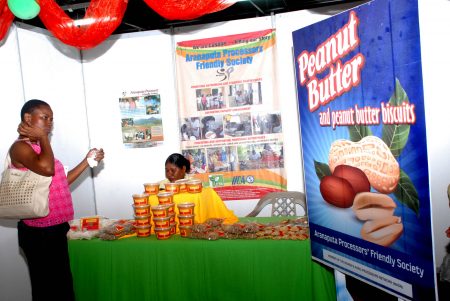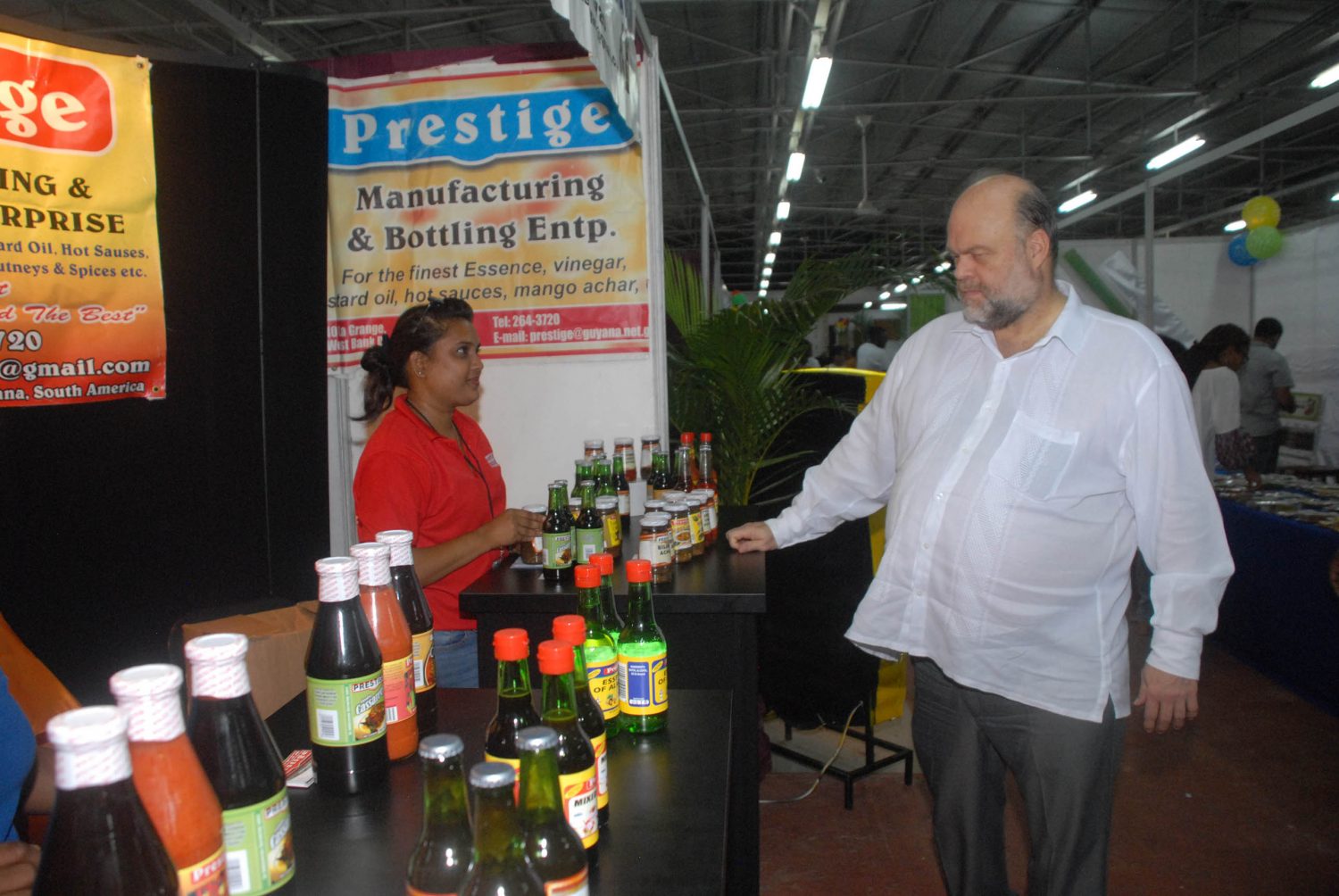As early as Saturday evening, long before the scheduled three-night Uncapped event at the National Exhibition Site, Sophia, was over, officials of the Guyana Manufacturing & Services Association (GMSA) were announcing that four more such events, at Providence, Port Mourant, and two other venues including one in Region Three, would be held in 2018. It was a sign that the modest turnout of visitors to the event notwithstanding, the organisers, the Ministry of Business and the GMSA, were prepared to stand behind the particular model in their pursuit of the creation of an expanded market for the range of agro-processed produced available in Guyana.
On Saturday evening both GMSA President Shyam Nokta and Event Coordinator Ramsay Ali were making the point that those who were inclined to measure the success of Uncapped by the number of attendees at the event on the first two evenings, compared with the customary GuyExpo crowds had missed the point that had earlier been made by the organisers that Uncapped was not intended to be a clone of GuyExpo. Its focus, they had said, would be on staging an event that would help raise public awareness of the range of products being produced by the country’s agro-processing sector whilst bringing agro processors – be they wholesalers or retailers and agro processors together in an effort to create an expanded market.

Arguably, the real significance of the event reposed in the fact that government and the private sector had still considered it worthwhile to put their names, jointly, to the event, at a time when political developments in the country appeared to have put them at odds with each other. A week earlier, all of the three major business support organizations (PSC, GMSA and GCCI) had issued public statements rebuking the political administration on the naming of retired Justice James Patterson as Chairman of the Elections Commission. The staging of the Uncapped event proved that if only for the moment, political differences were subsumed beneath the economic interests. If that disposition can persist both the political temperature in the country and the condition of the economy would be a good deal better off.
Inside the main auditorium on Saturday evening, fifty-seven agro processors and six Business Support Organisations including the state-run Small Business Bureau (SBB) and the Institute for Private Enterprise Development (IPED) were engaging the modest numbers of people browsing. Both GMSA officials conceded that the extent of interaction between buyers (wholesalers and retailers) was strictly limited, an observation that was corroborated by the agro-processors whose products were on display.
Stabroek Business counted sixty-four products ranging from locally make ice cream to a bewildering array of spices, condiments and wines manufactured from an assortment of local fruit and a handful of cosmetics. A display of more than a dozen by-products of coconut was among the most eye-catching. Some displays, like those put on by companies like UMAMI and Tandy’s, having already made an impact on both local and overseas markets, stood out. Others, in circumstances where we were afforded tasting opportunities, reflected quality, though the point made by both the producers and the GMSA about challenges associated with labeling and packaging was evidenced in some of the presentations.
Product packaging and presentation still have some distance to travel even though there was considerable evidence that local agro-processors now appear to have caught on to the reality that, these days, the competitiveness of their products reposes as much in presentation as in substantive quality. The available evidence at Sophia last weekend suggested that local agro-processors may now be more prepared to invest more resources in product presentation than they were inclined to in the past. That would add to the end cost of their products but then it would also add to marketability. In that sense the sector has moved forward.
The most obvious downside to the event as far as some of the vendors with whom Stabroek Business spoke were concerned was the fact that the hoped-for potential buyers, both wholesalers and retailers, who were expected to be there to see what the agro-processing market had to offer, were largely a ‘no show.’ Still, complaints about the volume of trading, even given the limited number of attendees was limited. Small producers of agro-processed products have come to understand that events of this type can provide them with a few really good trading days even if the number of potential buyers is nowhere near what one woman offering Indian spices described as “the GuyExpo crowds.” The overwhelming sentiment at Sophia over the weekend was that it was a modest opportunity but an opportunity anyway.





